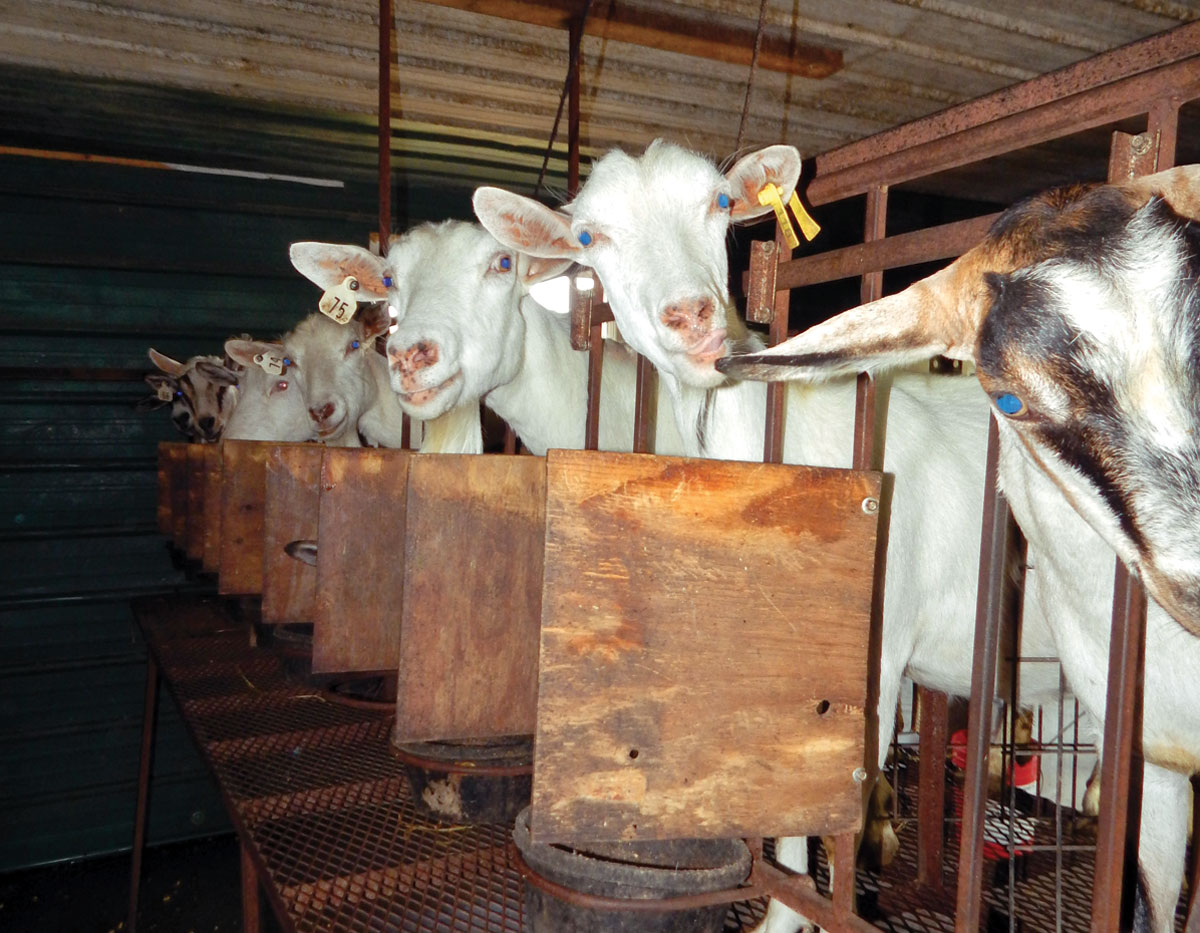
The dairy began in late 2014 and is on track to produce 70,000 pounds of milk this year
John Yoder is the oldest of nine children and at the age of 19 oversees the family’s dairy goat operation, as well as, their pallet-making business.
Moving from Mount Vernon four years ago to an area just southwest of the tiny community of Rocky Comfort, Mo., the Yoders opted to raise and milk dairy goats, having gained some experience from an uncle who has milked goats for the last seven years.
Mother, Erma Yoder, assisted by her older children, set out to purchase their first ever goat herd shortly after arriving in McDonald County in July 2014. They found a herd of goats for a decent price and took the leap into goat milk production in late 2014.
They currently milk 57 head and have 100 kids, making the total herd numbers to nearly 200 head. They hope to keep the active milkers to not more than 100 head. They currently only have one buck, but would like to acquire another one in the future.
“We keep all the kids for replacements and sell off any of the ones we won’t use, plus any billy kids after we neuter them,” John explained. “We sell these in January, during the months that the herd is dry between November and February.”
As a family operation, the five oldest siblings can be found doing the milking and feeding, taking on average less than an hour to complete the milking using 10 elevated stanchions.
“We prefer to keep the operation at the hand milking stage,” John said.
While most of the herd are mixed breed goats, John said their best producers are their Saanens, which are known for exceptional production and a better-quality milk, not to mention calm temperament.
Good nutrition is critical to the quality and quantity of the milk, not to mention the overall health of the animals. John said May production was down slightly due to not having access to the higher-quality alfalfa hay they prefer to use, requiring them to feed a lower-quality hay until the alfalfa could be cut. They also supplement with a dairy goat feed of whole corn, oats and mineral pellets.
As with all livestock the hardest thing is trying to keep them parasite free, for this reason and to stay ahead of the game, they de-worm every three months.
The family is contracted to sell 70,000 pounds of milk in this calendar year to the Turlock, Calif.,-based Meyenberg Dairy, which operate the world’s only two dairy goat milk condensing plants. The Yoder’s milk is picked up once a week and transported to the second location in Yellville, Ark. Their first year milking they were only contracted for 45,000 pounds, with increases each following year.
“Most of the milk purchased is turned into powdered milk or baby formula,” John added.
Goat milk differs from cow milk in concentration and nutrients, as well as, being high in calcium, lower in sugar and sodium and has smaller fat molecules making it easily digestible. For these unique qualities, goat milk is in high demand across the globe, especially for those individuals who are lactose intolerant.
“One of my younger brothers couldn’t handle cow’s milk and my mother gave him goat’s milk, which he tolerated much better,” John explains.
At this point, the dairy meets the contracted amount of milk with little to spare and for this reason the Yoders do not normally sell to the public or at Farmer’s Markets. Nevertheless, the family’s goat venture is contributing to their overall business enterprise.







I’m looking for grass-fed powdered butter.
I am looking fora young six month old Saanen billy to breed with my Saannen nannies that were born last year.
I have one that was born in January 2020 that I would like to trade if possible.
If you do not have one, if you know some one else that might have one could you guide me in their direction.
I do not line breed, that is why I want a new billy for this year.
Thanks
Don